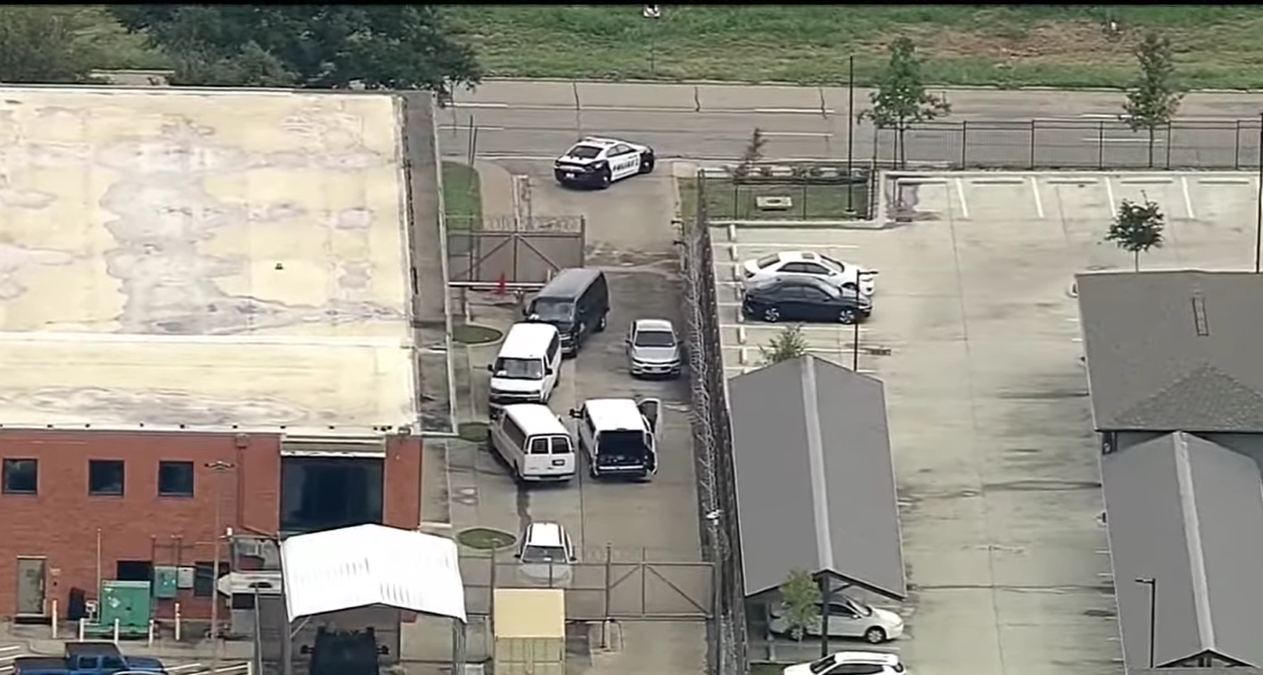The FBI is investigating a shooting incident at a Dallas ICE facility that resulted in one death and two serious injuries. The suspect, identified as Joshua Jahn, 29, reportedly committed suicide following the attack.
Explainer Shooting at ICE Facility Follows Controversial NBC Report
Authorities revealed that Jahn had gathered intelligence online prior to the ambush, including reviewing a document listing locations of the Department of Homeland Security (DHS) in Dallas. He also searched for applications that track the presence of ICE agents, according to FBI Director Kash Patel.
Marcos Charles, the executive associate director for enforcement and removal operations at ICE, confirmed that Jahn used these tracking apps to facilitate his attack. "The suspect's use of these applications underscores a troubling trend where tools designed for one purpose are repurposed for violence," Charles stated.
The FBI's investigation is ongoing, with agents working around the clock to seize devices and analyze data related to the shooting. Patel noted that the agency is committed to providing timely updates as more information becomes available.
In a handwritten note left by Jahn, he expressed a desire to instill fear in ICE agents, stating, "Hopefully this will give ICE agents real terror, to think, 'is there a sniper with [armor piercing] rounds on that roof?" This chilling message highlights the potential dangers posed by the misuse of technology.
Despite the serious implications of this incident, both Apple and Google have declined to suspend the tracking apps used by Jahn. The Federalist reached out to the media relations teams at both companies, inquiring whether they would remove apps that track ICE or law enforcement. As of the publication of this report, both companies had not provided a definitive response.
Critics argue that the availability of these apps poses a significant risk to law enforcement and public safety. "In our upside-down world, radar detectors that alert drivers to police presence are outlawed in some states, yet apps that help criminals evade arrest are freely accessible," said a representative from a law enforcement advocacy group.
Supporters of the apps contend that they serve a legitimate purpose for individuals seeking to avoid unjust deportation. In June, CNN featured an ICE-tracking app, quoting its creator who stated, "I wanted to do something to fight back" against ICE agents involved in deportations. The app is designed not to track users, which critics say complicates law enforcement efforts to monitor its use.
The FBI continues to investigate the broader implications of this incident, including the potential for further violence stemming from the misuse of technology. As the investigation unfolds, the debate over the availability of such apps is likely to intensify, raising questions about the balance between public safety and individual rights.
Why it matters
- The shooting at the Dallas ICE facility highlights the dangers of technology misuse, raising concerns about public safety and law enforcement.
- Joshua Jahn's actions and online research indicate a premeditated attack, prompting a deeper investigation into potential threats against ICE agents.
- The incident has sparked a debate over the availability of tracking apps, with critics arguing they endanger law enforcement while supporters claim they protect individuals from unjust deportation.
What’s next
- The FBI is conducting an ongoing investigation into the shooting, focusing on Jahn's digital footprint and the implications of technology misuse.
- Calls for Apple and Google to reconsider the availability of tracking apps are expected to intensify as the investigation progresses.
- Law enforcement advocacy groups may push for legislative changes regarding the use of apps that track law enforcement presence.

